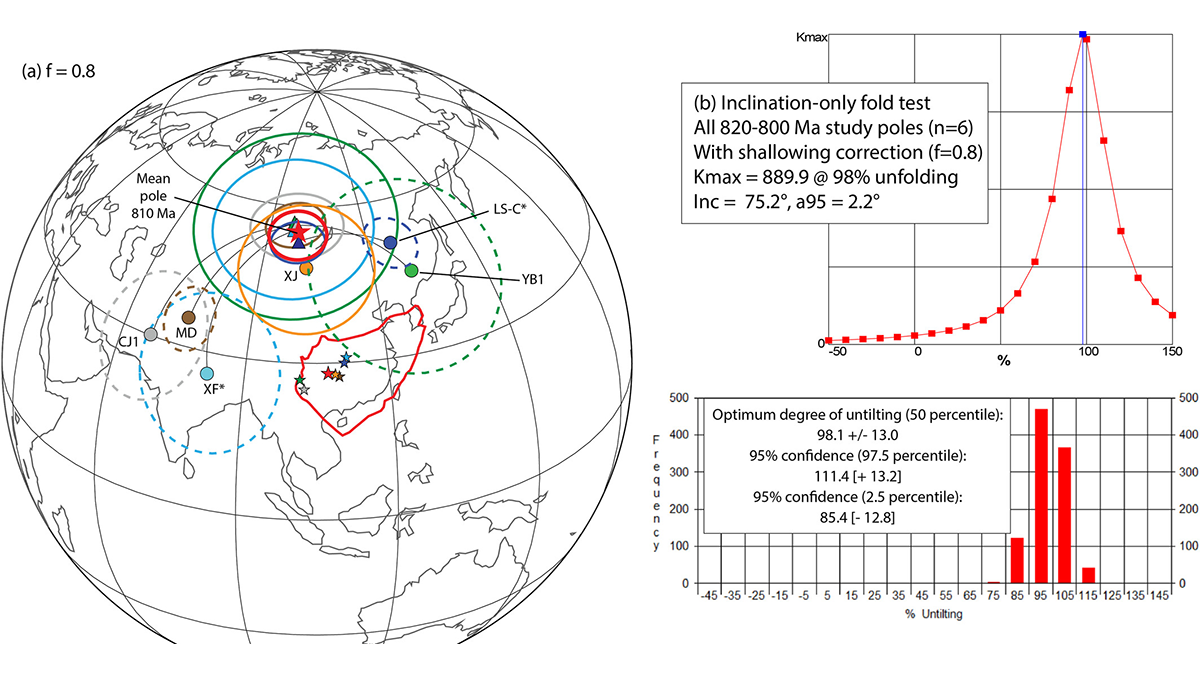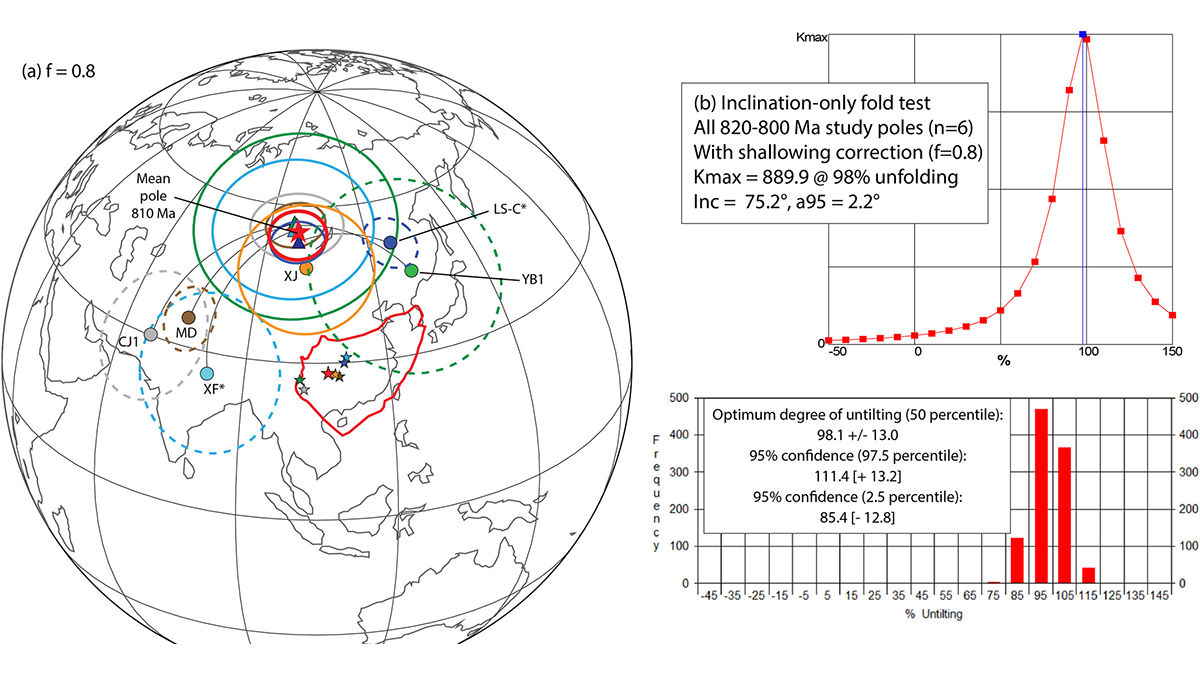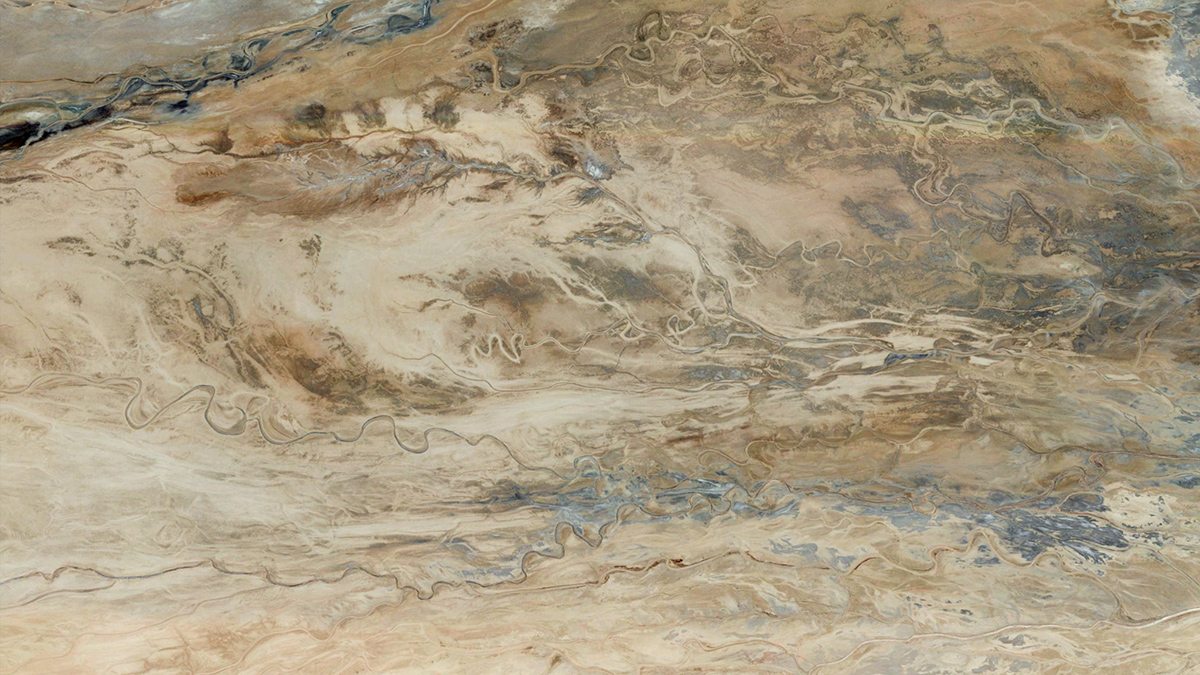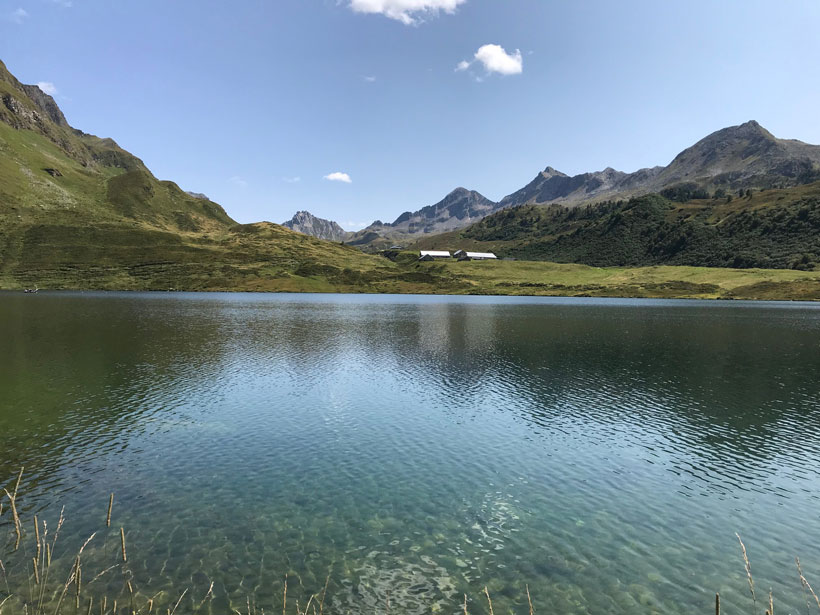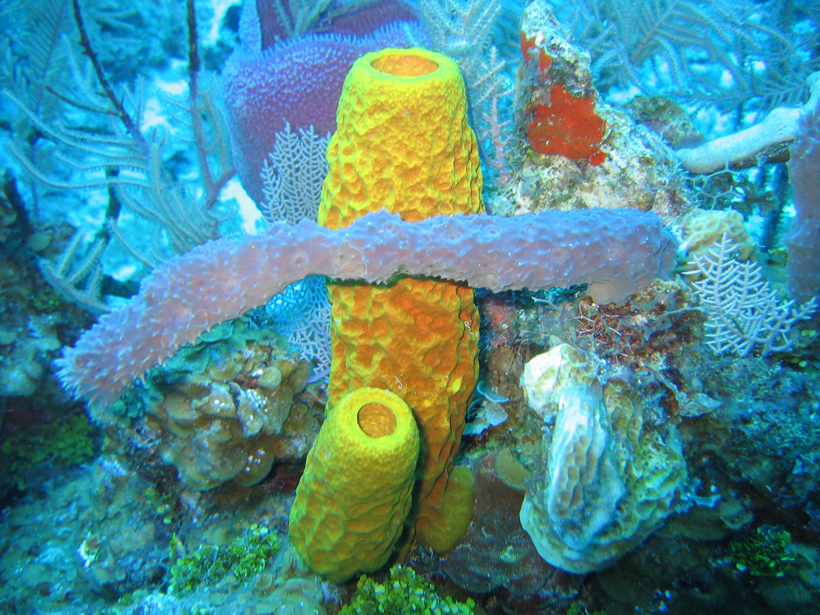在中国的一项详尽的研究发现在新元古代早期没有援引极端真正极移或异常地磁场的必要。
Proterozoic
How Great was the “Great Oxidation Event”?
Geochemical sleuthing amid acid mine runoff suggests that scientists should rethink an isotope signal long taken to indicate low levels of atmospheric oxygen in Earth’s deep past.
GAD is Enough!
An exhaustive study in China finds no need to invoke extreme true polar wander nor anomalous geomagnetic fields in the early Neoproterozoic.
Mud Could Have Made Meandering Rivers Long Before Plants Arrived
New evidence from 1.2-billion-year-old rocks suggests that single, sinuous channels could have formed in muddy floodplain sediments without the stabilizing help of vegetation.
Extinct Style of Plate Tectonics Explains Early Earth’s Flat Mountains
The geologic record suggests that despite Earth’s hot, thin crust during the Proterozoic, mountains were still able to form thanks to an extinct style of crustal deformation.
Purple Bacteria Fix Nitrogen in Proterozoic-Analogue Lake
A new study challenges the assumption that cyanobacteria were the only major nitrogen fixers in the Proterozoic eon.
Did Global Glaciation Cause the Great Unconformity?
In a new study, researchers make the case that large-scale glaciation during parts of the Neoproterozoic era led to extensive erosion of Earth’s crust.
Ancient Start of Animal Evolution Wasn't Delayed by Low Oxygen
New research finds that Earth had sufficient oxygen 1.4 billion years ago for animals to evolve. Therefore, low oxygen levels probably didn't hold back evolution, as scientists have long thought.

